By Kevin Coyne
The letter was from the bishop’s office and Peter Barcellona found it waiting for him when he returned to his Woodbridge home from a 2011 Easter-break trip to Washington with his youngest daughter. He had received several letters from the bishop’s office over the last year or so, mileposts along his latest faith journey, and this was the one that would tell him if he had reached his destination or not.
It would tell him whether he could take the decisive next step on the long road to becoming a deacon in the Catholic Church.
“Every time a letter would come to me, I would say, ‘OK, they’re probably going to kick me to the curb now,’” he says.
His hands shook as he opened it. He wasn’t out on the curb — he had passed the last stage of the discernment process and been accepted into the first class of the new Center for Diaconal Formation at Immaculate Conception Seminary School of Theology at Seton Hall University. Classes would start in the fall. But before he told anybody he took the letter and drove to his parish church, Saint Anthony of Padua in the Port Reading section of Woodbridge.
“The church was open, and it was dark,” he says. “And I went in and I laid the letter at the tabernacle, and I went face down on the floor right in front of it.”
He was 50, with four daughters and two grandchildren, and he had already given much of himself to others. He had started a network of local food pantries that he still ran and had traveled overseas as a lay missionary. He had also endured much in his own life, having survived cancer. Twice.
Four years after that day he got the letter, he prostrated himself again. This time it was in a cathedral filled with light and hundreds of other people, as he and 17 other men were ordained as deacons at Saint Francis of Assisi in Metuchen.
“I think that’s a wonderful example from the very beginning of Peter’s deep humility, for all that he has accomplished and the things he’s done,” says Deacon Andrew Saunders, director of the Center for Diaconal Formation. “It’s that sense of humility that allows deacons, that allows Peter, to do the work of Jesus Christ. It’s not our ministry. It’s Christ’s ministry flowing through us, and he got it from the get-go.”
Deacon Barcellona — who was honored with a Seton Hall Servant Leader Award in 2015, the year he was ordained — learned about service growing up the youngest of eight children in a family with deep and enduring roots in Woodbridge. His grandfather was a barber in town, his father a police officer, and his mother always had enough food in her kitchen to feed whoever tumbled in at suppertime. All eight children — seven boys, one girl — went to the parish school, Saint James.
“We were always taught to give more than we take,” he says. “My parents were very, very community-active people in town.”
He started giving at a time in his life when other people might have been inclined to start taking: when he was in his late 20s, he found himself a single father raising two girls under the age of 4. A friend of his, also raising two sons alone, had an idea. “So he said to me, ‘Hey, let’s go work at the food pantry,’” Deacon Barcellona recalls.
Well, why not? Saint James had a food pantry, but its hours were short and irregular, and it was never open in the evening, the only time some people could get there. And the parish had helped his own family after an on-the-job motorcycle accident had put his father out of work for months. They opened the pantry on Thursday evenings. “What did we know about running a food pantry? We knew nothing, but we dove into it and the kids were working beside us,” he says. “I think that’s the seed that was planted. We were two single fathers floundering in the sea of life, and it was like, ‘Where are we going with this?’ It fueled my passion for giving back to the community.”
Within three years, his volunteer work at the pantry had led to the townwide organization he helped start and still runs: We Feed Woodbridge, which has grown since 1992 from five pantries to 11, serving an average of 1,400 families a month. His full-time job as a public health investigator for Woodbridge Township helps keep him in contact with the network of donors who provide food and the community of clients who need it.
But then came cancer. He was 36, and testicular cancer spread to the lymph nodes in his abdomen and a lung. “When I was diagnosed I said, ‘Whatever your will is, if this means the end then I’m OK with that.’ I made my peace with what I needed to make peace with,” he says. “I knew the kids would be taken care of, I had put things in place, but I was going to fight until
I couldn’t fight anymore, which I did.”
And which worked, it seemed, until a little more than a year later, in 2000, when cancer was back in his lung. Forty debilitating hours of chemotherapy a week wasn’t enough; he had surgery to remove part of his lung.
“When you have that kind of come-to-Jesus moment your whole perception of what life means totally changes,” he says.
He started saying yes even more often when he heard calls to serve. Travel to Guatemala with the Diocese of Metuchen’s Catholic Charities Solidarity Team? To El Salvador with the Maryknoll missionaries? Sure.
“I worked locally with the marginalized — I never use the word ‘poor’ — and those who are food insecure for quite a long time,” he says. “Once I had that first trip to Guatemala, it kind of just fueled my passion for not only helping the marginalized locally but the marginalized globally.”
And Barcellona said yes when a friend who was a deacon suggested he become one, too. The program he attended at Immaculate Conception Seminary was among the first in the United States to bring diaconal candidates to study in a seminary, the start of a movement to make the formation process more intellectually rigorous. He had been to community college and a business college but he didn’t have a bachelor’s degree, and despite all that life had taught him he worried about how he would fare in a classroom. And by now, he had two more daughters. But for the next four years he spent evenings and Saturdays in theology classes.
After ordination he was assigned to Saint Anthony of Padua, where, like most deacons, he assists at Masses, performs baptisms, marriages and other rites. He has conducted the marriages of two of his daughters (the other two were married before he was ordained), and baptized the three of his five grandchildren who were born after he became a deacon. He has become especially adept at a task that at first he wasn’t sure he would be up to.
“To break open the scriptures and preach? That’s a lot of responsibility,” he says.
His life continues to give him much to draw upon in his homilies. His mission work has expanded since his ordination: Tanzania, Lebanon, Egypt. When he preaches on Luke 16: 19-31, the story of the rich man who ignored the beggar Lazarus at his gate, embedded in his message are his memories from Tanzania of holding a 4-year-old girl with malaria, and celebrating Mass under a tree with worshipers who brought a live chicken for the offertory. Also embedded is his knowledge of how much difference clean drinking water and a nurse who can provide basic immunizations can mean to a town in Guatemala.
“Maybe we have walked down a street and come upon someone calling out for food or help? What are we inclined to do? Do we make believe we do not see them? Do we glance elsewhere, so that our eyes do not meet theirs?” Deacon Barcellona preached one week at Saint Anthony. “Jesus is saying to us, ‘Wake up! You still have time. Look around and see.’”
He is now the director of the group he accompanied on his first trip to Guatemala, the Diocese of Metuchen’s Catholic Charities Solidarity Team, and he serves as a global fellow ambassador for Catholic Relief Services, the American church’s agency for international humanitarian work.
“What makes him different than most other deacons that have come through our program is the depth and breadth of his ministry,” Deacon Saunders says. “What he has been able to do is take those experiences and come back and preach on them and make people aware of some of the things that are going on around the world.”
Deacon Barcellona often travels to schools and parishes far from his own, spreading the word about the work of Catholic Relief Services, telling stories and showing images of the people he’s met and the places he’s been overseas, carrying that message from the Gospel of Luke.
“They’re not looking for a handout — all they want is to have their story told, so they’re known,” he says. “My work is all about telling the story.” His cancer never returned, and when he does his five-mile walks now he says he would never know he’s missing half a lung. He has plenty of breath to keep talking.

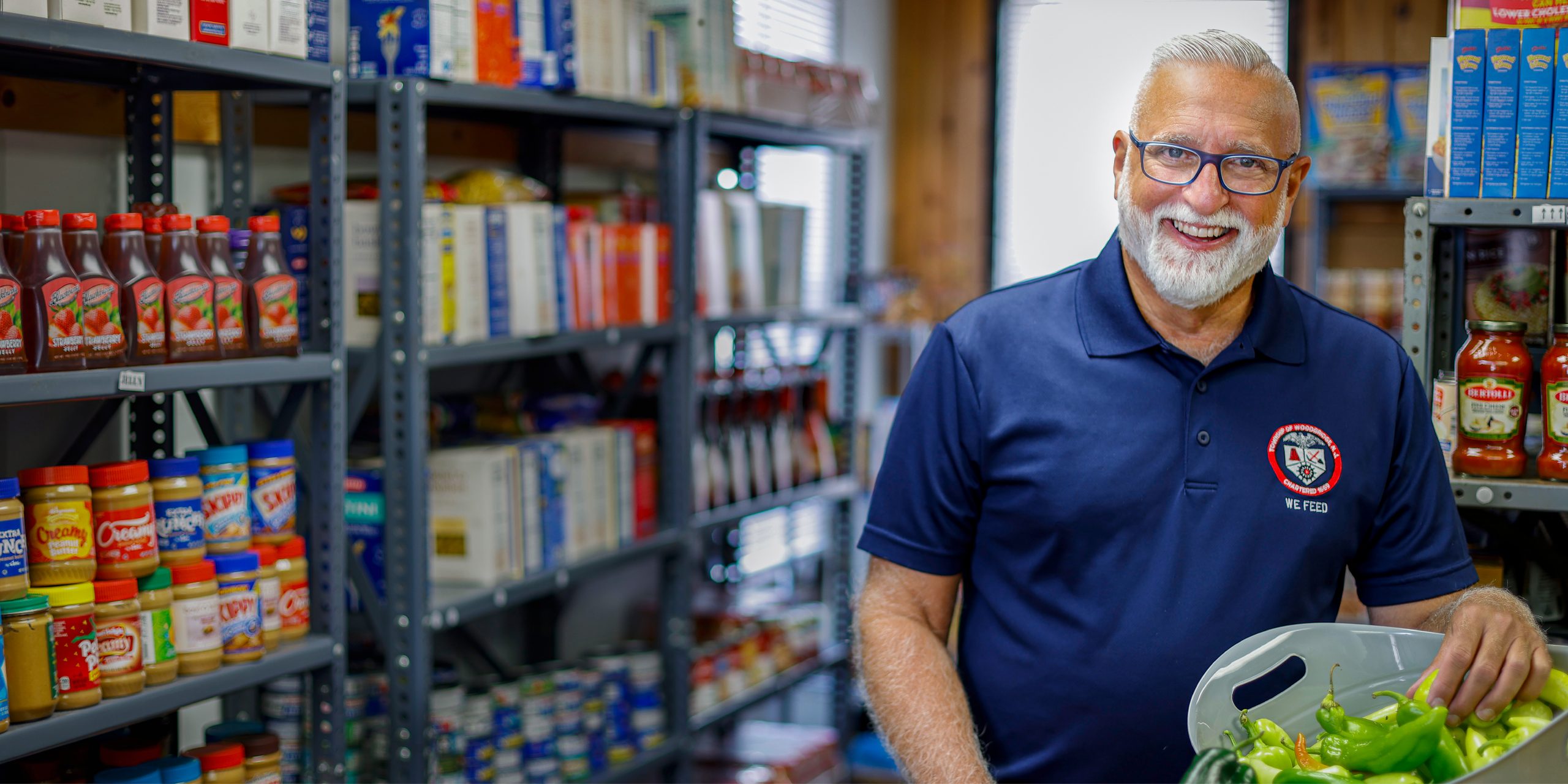
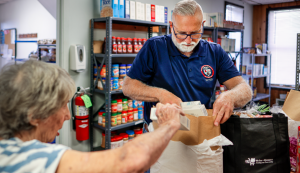


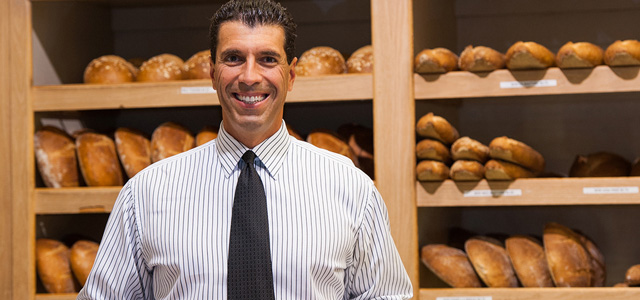
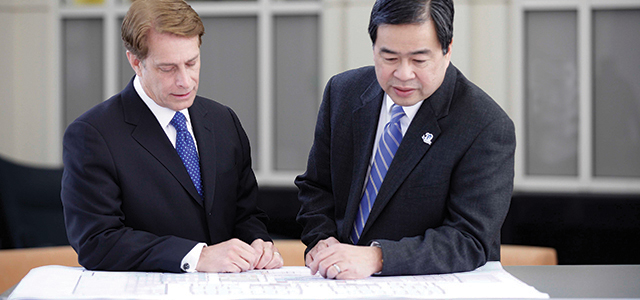
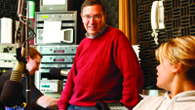
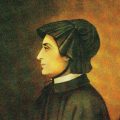
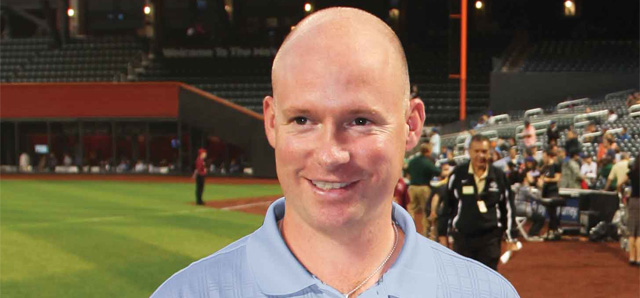

What an inspiration!
I want to thank Deacon Peter Barcellona for the ‘depth and breadth’ of his ministry, for feeding the marginalized, and for proclaiming the gospel message to all. I am with you in prayer and hope that your ministry continues to extend beyond borders. Thank you for impacting lives.